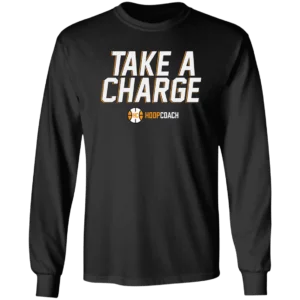
Let’s quickly define “high-level” player and move on. If you’re a high-school player, you want to play at the college level best suited for you. If you’re a college player, you may aspire for the NBA, the G-League or an opportunity at the various levels of play overseas.
No matter where you are on the ladder, the competition is fierce. To emerge from the competitive cauldron, players have to survive a number of physical, mental and emotional battles. Let’s concentrate today on the mental and emotional sides of the challenge. Ask yourself if you possess the following traits and to what degrees. High level players possess many of these traits and at high degrees.
- Enjoyment of the game. Do you arrive at the gym every day positive and appreciative of the opportunity you have to improve your game and have fun?
- Respect. Do you respect the history of the game, your coaches, teammates, opponents and officials?
- What is your level of commitment? A newspaper article the other day featured a mid-major player who said he was taking 5,000 shots a day this Summer. Some casual math indicates that a player with a rebounder can take around 10 shots a minute-give or take, or 600 an hour. That computes to about 8 hours a day-on shooting alone! We’re not suggesting to put your personal life on hold-just pointing out that others do.
- Do you possess practice focus? If, for instance, the 5,000 shot a day player doesn’t effectively focus on every single shot in a high-level way, perhaps the amount of “effective” work is much less than 5,000 shots. High concentration work is the goal-regardless of the duration of the workout.
- Do you possess game focus? Having a “game face” is not enough. It really means not losing sight of your purpose on the floor-no matter what happens out there. Players lose focus for many reasons- referee calls, crowd issues, personal issues, performance disappointments, or any other number of distractions.
- Do you have a high-level approach or demeanor? This can be a pretty vague concept but I know a great “approach” by an athlete when I see it. It’s how an athlete “carries himself” in competition and in preparation and goes about his business. A great approach includes self-confidence, a competitive edge, persistence, and a mature, consistent outlook which focuses on the next play, not the last play.
- Do you manage anxiety and your emotions?
- Are you team-oriented?
- Do you have high but realistic goals?
- Are you able to both lead and follow?
If you’re totally honest, this little exercise can help you zero in on areas that perhaps you’ve overlooked or forgotten. Sometimes we get so wrapped up in the technical parts of the game that we forget how important our mental and emotional foundations are.



Coach,
Starting with items 1 and 2. They are exactly where one should begin, in well ordered World or not. The last sentence of item 4 is an important key for moving from a casual commitment to a high level. It’s also a key way to prepare and for achieving item 5. The way you explain item 6 the ability to observe traits of high level atheletes is something that you have had ever since I have known you. I’ll just note how many factors go into getting this one. Nonetheless it is as you note crucially important to success. Suffice it to say items 7 thru 10 are also important keys. In the house league’s that I coach. I notice the best and the not so-best, struggle with item 7. The best players always struggle with item 8, in that they don’t always think that making their teammates better players is a task they want. Thank goodness for the players that get number 10. They become crucial to the team as a playing unit, and as an organizational unit. Great article Coach. I plan on sharing it with my players past and current.
This is great! Thanks for sharing it with your ex-players, Bob! Can I ask where you coach?
This past winter I coached 7 and 8th grade boys in Herndon, Virginia (Haley Smith League). I just finished up summer League for 13 and under Boys in Reston Virginia as of yesterday.
Nice! Thanks for the comments. Last question: Are you a teacher?
I would probably be a better Coach if I were…..curious why you ask?
I worked at a school for a long time and your original response seemed very teacher like! Thorough and well written.